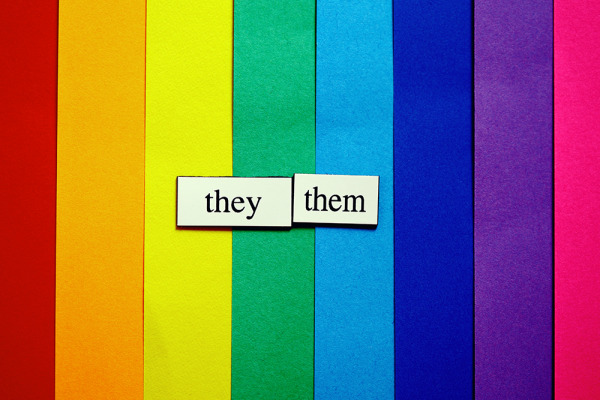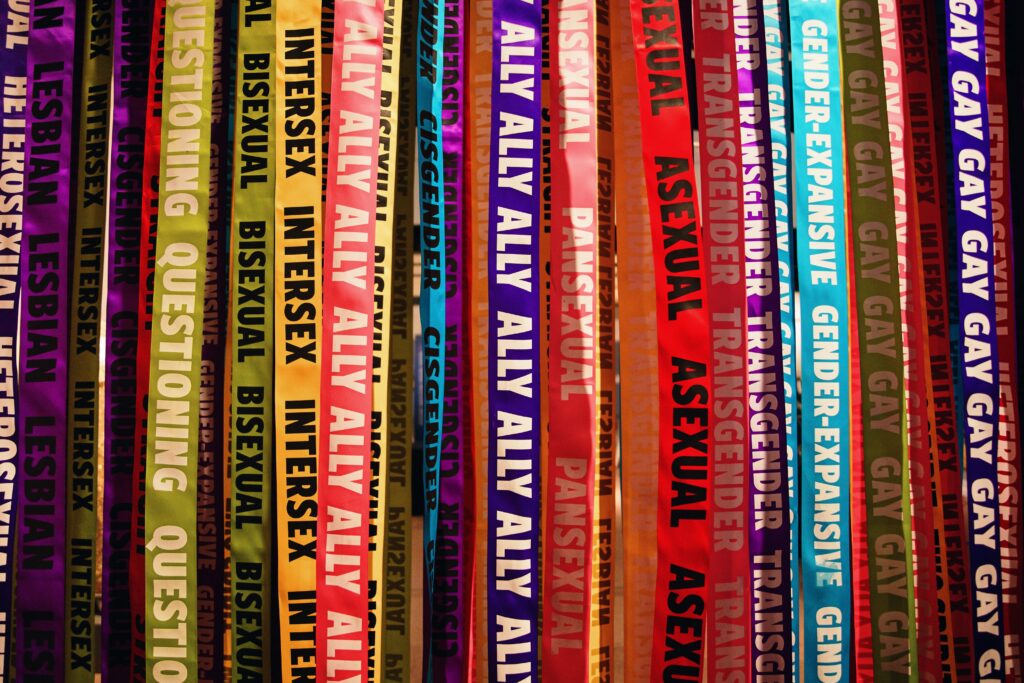It’s International Pronouns Day, as 3000+ new (and queer) words will be added to dictionary.com
October 19 is International Pronouns Day! Referring to people by the pronouns they choose for themselves is a basic courtesy. Being referred to by the wrong pronouns never feels good or appropriate but it particularly affects transgender and gender nonconforming people.
To this extent, it’s important that our language usage reflect our social standards and express an acknowledgment of human dignity for all. Words matter. Words predicate actions.
And if you think expanding pronouns are a fad you can afford to ignore, you’d be wrong.
Just in time, Dictionary.com, the leading online and mobile English-language educational resource, has announced 620 new entries, 700 new definitions for existing entries, and 3,100 revised definitions, as the dictionary works to keep pace with the ever-changing English language.
Some of the key themes and words in its update include work culture (antiwork, pawternity leave), pop culture and slang (simp), very online (brigading), sports (Ohtani rule), climate (decarbonize), politics and the economy (Zelenskyy and 45), gender and relationships (bachelorx party and nounself pronoun), policing (kettling), legacy of the pandemic (air hug), and a wide range of other assorted updates, many of which are sure to delight word lovers (pogonophile).
Entries involving Ukrainian place names were added and updated to prioritize the Ukrainian spellings or pronunciations (rather than the Russian versions that have traditionally been recorded). As an essential part of these updates, Dictionary.com’s team of lexicographers consulted with Slavic language experts. Examples include: Chornobyl, Dnipro, and Kharkiv, among over 40 others.
Other key changes include the addition of names that Indigenous Peoples use for themselves (as opposed to the names applied to them by others, many of which persist in outside use today). Several entries were also revised to show the endonym as the primary spelling and pronunciation. Examples include Mi’kmaq, Ojibwe, and CHamoru. In some cases, more than one name is used by members of a community, which is reflected in language notes for the newly added terms.

In its ongoing efforts to address the complexity in usage, history, and associations for many of its newly added and updated words, Dictionary.com provides additional context, especially for terms that concern or originate from marginalized or minoritized groups. In its article, “From The Discourse To The Dictionary: Fall 2022 New Words,” the dictionary’s editors provide essential explanations for such updates as: lie flat, lavender ceiling, shadow docket, simp, stimming, and the verb at, among others.
“The words we add to the dictionary are driven by real people using real words in the real world,” said John Kelly, Senior Director of Editorial at Dictionary.com. “At Dictionary.com, we strive not only to document the words, but to capture them in the context of their complexity, their creativity, their humanity—in the realities of an ever-evolving language in a fast-changing culture.”
Dictionary.com’s newest list of terms can be found at https://www.dictionary.com/e/new-dictionary-words-fall-2022/.
About Dictionary.com and Thesaurus.com
Words define every aspect of our lives, from our ideas to our identities. Dictionary.com aspires to empower every person, of every background, to express themselves, make connections, and open the door to opportunity through the power and joy of language. Dictionary.com is the premier destination to learn, discover, and have fun with the limitless world of words and meanings. The brand helps you make sense of the ever-evolving English language so you can put your ideas into words—and your words into action.






